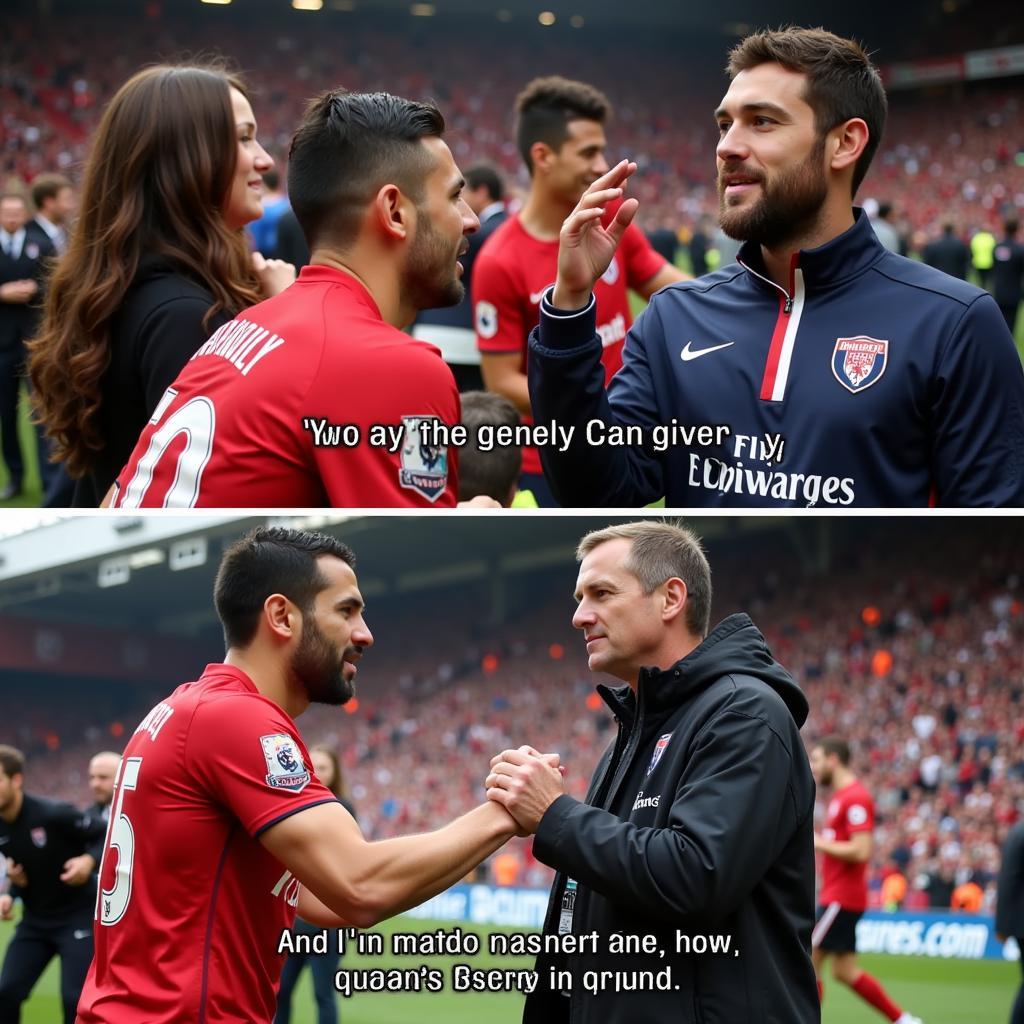The term “rude Joshua fan” has gained traction in recent years, sparking discussions and debates across various online platforms. This article delves into the complexities surrounding this label, examining its origins, implications, and the broader context of fan behavior in sports. We’ll explore what constitutes rudeness in the context of fandom, how it impacts the perception of both individual fans and the sport itself, and consider whether this behavior reflects a broader trend in sports culture. Just after this introduction, let’s look at some common perceptions.
The Genesis of the “Rude Joshua Fan” Label
The “rude Joshua fan” label is primarily associated with Anthony Joshua, a prominent British boxer. It seems to have emerged from incidents, both real and perceived, involving fans exhibiting unruly or disrespectful behavior during and after his fights. Some argue that this label is unfairly applied to all Joshua supporters, while others maintain that it accurately reflects a vocal minority within his fanbase. The online nature of these discussions contributes to the rapid spread and amplification of these perceptions. It’s important to analyze specific instances rather than making sweeping generalizations. What constitutes “rude” behavior can be subjective and open to interpretation.
What constitutes rude behavior? Is it simply boisterous cheering for their favored boxer, or does it cross the line into personal attacks and disrespectful jeering towards opponents and their supporters? This question warrants careful examination. The perception of rudeness can be shaped by various factors, including cultural differences, personal biases, and the specific context of the event. Is there a line between passionate support and unacceptable conduct?
The Impact of Fan Behavior on the Sport
Fan behavior plays a crucial role in shaping the image and atmosphere of any sport. While passionate support can energize and uplift, negativity and rudeness can detract from the experience for everyone involved, including athletes, other fans, and viewers at home. The behavior of a few can unfairly tarnish the reputation of an entire fanbase. The rise of social media has only exacerbated this issue, as negative interactions are quickly amplified and disseminated, creating a distorted perception of fan culture. How do we balance the right to express fandom with the need for respectful conduct?
The Role of Social Media in Amplifying Negativity
Social media platforms can be breeding grounds for both positive and negative fan interactions. The anonymity afforded by these platforms can embolden some individuals to engage in behavior they might not exhibit in face-to-face interactions. The rapid spread of information, including potentially misleading or exaggerated accounts, can contribute to a distorted perception of fan behavior and fuel further negativity.
Different Perspectives on “Rude Joshua Fan”
Understanding the different perspectives surrounding the “rude Joshua fan” label is crucial. Some see it as a legitimate criticism of a segment of Joshua’s supporters, pointing to specific instances of unacceptable behavior. Others view it as an unfair generalization, arguing that it unfairly targets all of his fans based on the actions of a few. There’s also the perspective of Anthony Joshua himself and how this label affects his image and career. Exploring these varying viewpoints offers a more nuanced understanding of the issue.
Examining Specific Instances of Rude Behavior
Analyzing specific instances of alleged rude behavior is essential to separate fact from fiction. It’s important to consider the context surrounding these incidents, the evidence available, and the potential biases of those involved. This approach promotes a more objective assessment of fan behavior and avoids generalizations.
The Future of Fan Culture in Boxing
The “rude Joshua fan” discussion raises broader questions about the future of fan culture in boxing. How can we promote positive and respectful fan engagement? What role should athletes, sporting organizations, and social media platforms play in shaping fan behavior? These are complex issues that require ongoing dialogue and collaborative efforts.
 The Future of Fan Culture in Boxing: Promoting Respect and Inclusivity
The Future of Fan Culture in Boxing: Promoting Respect and Inclusivity
Conclusion
The “rude Joshua fan” phenomenon highlights the complexities of fan behavior in the digital age. Understanding the origins, implications, and diverse perspectives surrounding this label is essential to promoting a more positive and respectful sports culture. Addressing this issue requires a collaborative approach involving fans, athletes, organizations, and online platforms. Let’s work together to create a more inclusive and enjoyable experience for everyone involved in the sport of boxing.
 Positive Fan Interactions in Boxing
Positive Fan Interactions in Boxing
FAQ
- What does the term “rude Joshua fan” refer to?
- Is it fair to label all Joshua fans as rude?
- How does social media contribute to the perception of rude fans?
- What can be done to promote positive fan behavior in boxing?
- How does fan behavior impact the sport overall?
- What are some examples of “rude” behavior at sporting events?
- What is Anthony Joshua’s stance on fan behavior?
Need support? Contact us 24/7:
- Phone: 0903426737
- Email: fansbongda@gmail.com
- Address: Lot 9, Area 6, Gieng Day Ward, Ha Long City, Quang Ninh, Vietnam.


